Since last Saturday, authorities have seized what’s likely to be hundreds of pangolins in Vietnam and Malaysia.
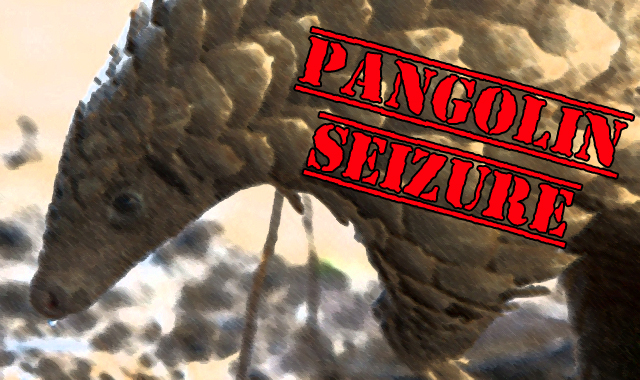
One week ago, wildlife officers in Malaysia nabbed a known poacher found carrying 18 pangolins in his vehicle and only days later, Vietnam police seized five tonnes of frozen pangolins and iguanas in a suspicious bust.
The recent events bring the total number of pangolin seizures reported by media to ten so far this year.
Strange case unfolding in Vietnam
The Washington Post says the five tonne haul of dead pangolin and iguana bodies were seized from a warehouse in Mong Cai, Vietnam – a town situated near the Chinese border.
The alleged owner of carcasses – said to be a 30 year-old wildlife trader – apparently confessed to police that he had bought the animals from somewhere in central Vietnam and had planned to sell them in China.
However, it seems the man has not yet been arrested nor has anyone else, and few details have emerged about the incident.
The authorities reportedly declined to comment to many press representatives, but it seems the Associated Foreign Press (AFP) managed to get a few quotes.
“We found the animals after a random check on Wednesday. They were supposed to be sent for consumption in China,” a provincial anti-smuggling policeman told AFP.
Interestingly, another officer added that though no arrests had been made, the case would soon be sent to prosecutors.
The 29-year-old owner of the animals has not been arrested but “an investigation is ongoing and the case will be sent to prosecutors soon for a decision”, added the policeman, who did not wish to be named.
This was Vietnam’s first pangolin bust of the year and depending on how much of the five tonne haul they comprised, it’s likely to have been hundreds of individual pangolins.
Known poacher nabbed in Malaysia
Wildlife officers on patrol in northern Malaysia apprehended a known poacher and his accomplice last Saturday, when they found 18 pangolins tied up in bags in their vehicle.
Luckily, the animals were discovered alive and have since been returned to the wild.
The arrests were made along a highway that divides a state park and a protected forest reserve – a road known to be used by pangolin traffickers.
Wildlife trade monitoring network, TRAFFIC, says this is the second pangolin bust to be made along that highway in the last six months – another dozen scaly anteaters were seized from a car in November.
The suspects were headed toward the Malaysia-Thailand border, a common smuggling route for the illegal wildlife trade.
The NGO adds that at least 445 pangolins have been seized in northern Malaysia since February 2010 – and a whopping 1,800 nationwide.
Published reports of seizures show that at least 445 pangolins have been confiscated from traffickers in Malaysia’s northern states since February 2010. In total at least 1,800 pangolins have been seized throughout the country in the same period.
Earlier this month, Malaysian officials intercepted a Laos-bound shipment of 50 pangolins at Kuala Lumpur International Airport earlier this month – the nation’s first pangolin bust in 2012.
Scaly anteaters spiraling toward extinction
TRAFFIC reports that pangolins are the most commonly encountered mammals in the illegal wildlife trade in Asia.
These animals are in high demand in East and Southeast Asia, with China and Vietnam identified as the largest consumer nations.
There, the flesh of adults and fetuses are consumed as delicacies and for superstitions surrounding good fortune and ‘health benefits’.
Like other animal-based traditional Chinese medicines, pangolins’ blood and body parts – especially their scales – are superstitiously used as a ‘cure-all’ remedy for things like reducing swelling, improving liver function, weight loss, stimulating blood circulation, and enhancing lactation in breast-feeding women.
Reckless rumors have also been spun claiming pangolin scales can cure cancer.
There is no scientific evidence to support any of the medicinal claims made about pangolin body parts.
In fact, rhino horn and pangolin scales (much like our own hair and nails) are chiefly composed of keratin and studies have repeatedly shown rhino horn to be void of any medicinal properties.
A recent Project Pangolin discovery suggests that demand for pangolin parts is likely being stimulated by lucrative pangolin farming ventures in China. (Read more about it here.)
Author: Sarah Pappin. Read more about Sarah here.
Image via Wikimedia Commons, adapted by author.
Want to help? Check out our pangolin t-shirts: Project Pangolin is contributing $2.00 per t-shirt or hoodie to Education for Nature-Vietnam.


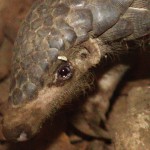
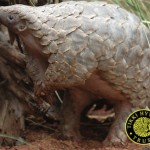
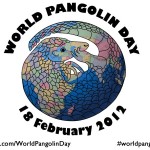
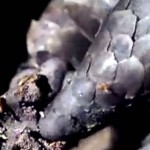
Comments are closed.